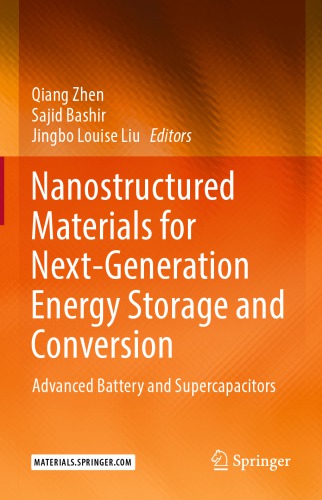

Most ebook files are in PDF format, so you can easily read them using various software such as Foxit Reader or directly on the Google Chrome browser.
Some ebook files are released by publishers in other formats such as .awz, .mobi, .epub, .fb2, etc. You may need to install specific software to read these formats on mobile/PC, such as Calibre.
Please read the tutorial at this link: https://ebookbell.com/faq
We offer FREE conversion to the popular formats you request; however, this may take some time. Therefore, right after payment, please email us, and we will try to provide the service as quickly as possible.
For some exceptional file formats or broken links (if any), please refrain from opening any disputes. Instead, email us first, and we will try to assist within a maximum of 6 hours.
EbookBell Team

4.7
46 reviewsVolume 3 of a 4-volume series is a concise, authoritative and an eminently readable and enjoyable experience related to lithium ion battery design, characterization and usage for portable and stationary power. Although the major focus is on lithium metal oxides or transition metal oxide as alloys, the discussion of fossil fuels is also presented where appropriate. This monograph is written by recognized experts in the field, and is both timely and appropriate as this decade will see application of lithium as an energy carrier, for example in the transportation sector.
This Volume focuses on the fundamentals related to batteries using the latest research in the field of battery physics, chemistry, and electrochemistry. The research summarised in this book by leading experts is laid out in an easy-to-understand format to enable the layperson to grasp the essence of the technology, its pitfalls and current challenges in high-power Lithium battery research. After introductory remarks on policy and battery safety, a series of monographs are offered related to fundamentals of lithium batteries, including, theoretical modeling, simulation and experimental techniques used to characterize electrode materials, both at the material composition, and also at the device level. The different properties specific to each component of the batteries are discussed in order to offer tradeoffs between power and energy density, energy cycling, safety and where appropriate end-of-life disposal. Parameters affecting battery performance and cost, longevity using newer metal oxides, different electrolytes are also reviewed in the context of safety concerns and in relation to the solid-electrolyte interface. Separators, membranes, solid-state electrolytes, and electrolyte additives are also reviewed in light of safety, recycling, and high energy endurance issues. The book is intended for a wide audience, such as scientists who are new to the field, practitioners, as well as students in the STEM and STEP fields, as well as students working on batteries. The sections on safety and policy would be of great interest to engineers and technologists who want to obtain a solid grounding in the fundamentals of battery science arising from the interaction of electrochemistry, solid-state materials science, surfaces, and interfaces.